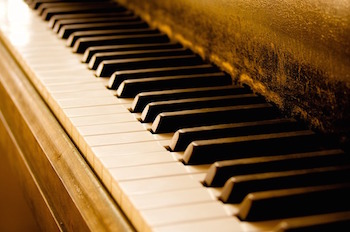In the piano industry, regulations have changed significantly over the years. Up until the 1950s, ivory veneering was used to cover a piano’s keys and give it the smooth, ivory look we’ve all come to associate with a piano.
Yet in the 1950s, things began to change. We began to understand the brutal nature of the ivory industry, and began abandoning the old ways of covering the keys on a keyboard with ivory, and turned to plastic instead. By the 1980s, the European market was on board with the ivory ban, and today no new pianos are built containing ivory.
Nonetheless, the US Fish and Wildlife Service continues to do its part regarding the sale of ivory, and has taken steps to increase regulation against the sale, import and export of anything ivory.
Under new Federal regulations, a piano with ivory keys will be prohibited from most sales both across state lines, for import or export, and in some cases will no longer be able to be sold within a state itself. Individual states such as New York and New Jersey have passed their own bills eliminating the sale of a piano with ivory keys within its borders. This means that anyone – individuals or dealers – will not be permitted to buy, sell, or take in trade a piano with ivory keys.
These new regulations are a hot topic among industry experts, partially because of the confusion left behind. The law is designed to put an end to elephant poaching once and for all. In some areas where elephants used to live in mass – Chad, for instance – over 90 percent of the population has been eliminated due to poaching, with less than 500 surviving.
The idea is that if things can’t be exported, imported, or sold, they will become difficult to part with and lose their value. That makes things difficult, especially for musicians who travel throughout America from abroad.
The proposed regulation does have an”antique” exemption clause for pianos more than 100 years old. But keep in mind that its often difficult to document and prove a pianos age, and you must have meticulous documentation on file in order to be safe. If a piano has had repairs or restoration in the past, it no longer qualifies, and will disqualify from the exemption.
If you own a piano that has been in your family for generations, private ownership is fine. But keep in mind that the likelihood of both selling it or in some cases even working on it is decreasing all the time.
Have further questions? Give us a call today.

